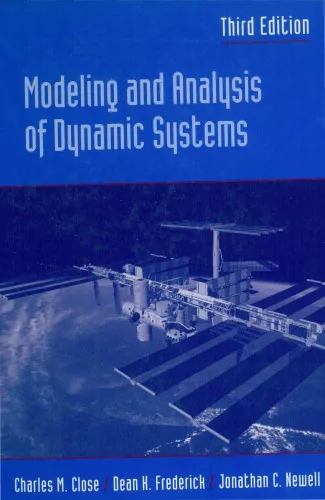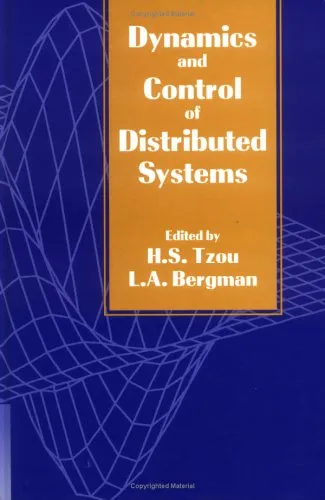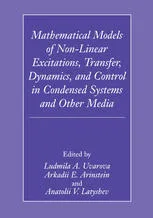Killer Cell Dynamics: Mathematical and Computational Approaches to Immunology
4.5
Reviews from our users

You Can Ask your questions from this book's AI after Login
Each download or ask from book AI costs 2 points. To earn more free points, please visit the Points Guide Page and complete some valuable actions.Related Refrences:
Introduction
Welcome to "Killer Cell Dynamics: Mathematical and Computational Approaches to Immunology," a comprehensive exploration into the intricate world of immune responses and the role of killer cells. This book dissects the sophisticated mechanisms of our immune system, utilizing mathematical and computational techniques to unravel the complexities of killer cell dynamics.
As you delve into the chapters of this book, you will embark on a journey through the mathematical models and computational simulations that provide critical insights into immunology. These elucidations aim to enhance our understanding of how killer cells operate within the immune system, offering both theoretical perspectives and practical applications.
Detailed Summary of the Book
The fundamental premise of this book centers on the dynamic functions of killer cells—particularly Cytotoxic T Lymphocytes (CTLs) and Natural Killer (NK) cells—within the immune system. Killer cells are a vital component of our body's defense against infections and cancerous cells. This book outlines their roles, the principles underpinning their action, and how mathematical modeling can predict their behaviors in different scenarios.
Throughout the chapters, "Killer Cell Dynamics" bridges the gap between theoretical models and biological experiments. It introduces differential equations, agent-based models, and computational simulations as tools to model the behavior of killer cells. By applying these mathematical frameworks, the book evaluates the responsiveness of killer cells to pathogenic challenges and assesses their efficacy in eliminating infected or transformed cells.
The book also delves into key case studies and real-world applications where these models have significantly enhanced our understanding of immune responses. The extensive analysis provides invaluable knowledge not only to immunologists but also to mathematicians, computational biologists, and researchers in related fields.
Key Takeaways
1. Integration of Mathematics and Immunology: Explore how mathematical approaches can be efficiently integrated into immunological studies to illuminate the dynamic actions of killer cells.
2. Comprehensive Models: Gain insights into various models that simulate the interaction of killer cells with pathogens, enhancing predictive capabilities.
3. Translational Impact: Understand the implications of these models in translational medicine, particularly in developing therapeutic strategies against cancers and viral infections.
4. Collaboration Across Disciplines: The book underscores the importance of interdisciplinary collaboration in advancing the understanding of complex biological systems.
Famous Quotes from the Book
"In the realm of the microscopic, killer cells are the unsung heroes, executing a delicate yet powerful orchestration in the body's fight against disease."
"Mathematics is not merely a tool, but a bridge; it connects abstract biological concepts to tangible clinical solutions."
Why This Book Matters
The significance of "Killer Cell Dynamics" lies in its pioneering approach to combining mathematical rigor with biological inquiry. In an era where precision medicine is at the forefront, understanding immune responses at a granular level is crucial. This book equips readers with the knowledge to contribute to cutting-edge research in immunology, offering fresh perspectives that challenge traditional paradigms.
Moreover, this text serves as an educational beacon for anyone eager to delve into the sophisticated interplay between mathematics and biology. It encourages the reader to appreciate the power of computational techniques in revealing unseen layers of biological processes, fostering innovation in research methodologies.
In conclusion, "Killer Cell Dynamics: Mathematical and Computational Approaches to Immunology" not only demystifies the operation of killer cells but also empowers researchers with tools and insights to shape the future of immunological advancements.
Free Direct Download
You Can Download this book after Login
Accessing books through legal platforms and public libraries not only supports the rights of authors and publishers but also contributes to the sustainability of reading culture. Before downloading, please take a moment to consider these options.
Find this book on other platforms:
WorldCat helps you find books in libraries worldwide.
See ratings, reviews, and discussions on Goodreads.
Find and buy rare or used books on AbeBooks.
1343
بازدید4.5
امتیاز0
نظر98%
رضایتReviews:
4.5
Based on 0 users review
Questions & Answers
Ask questions about this book or help others by answering
No questions yet. Be the first to ask!













